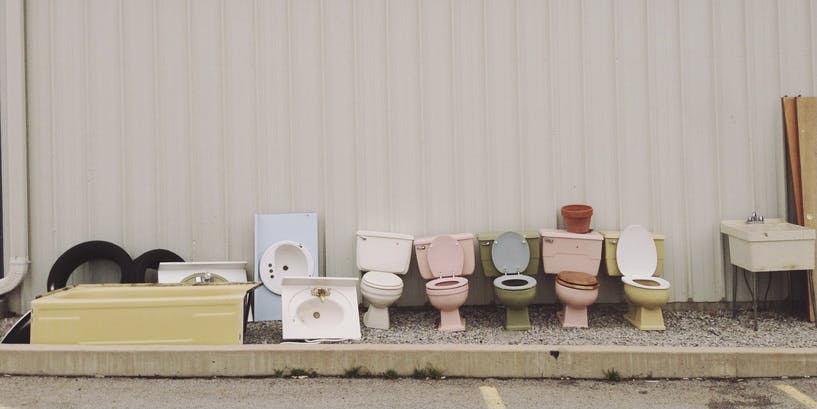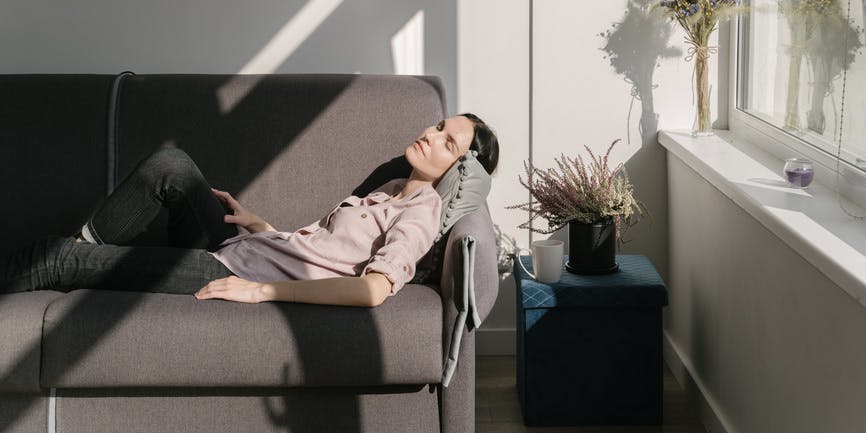¿Nos estamos enfermando más jóvenes? Esto es lo que dice la ciencia.

According to health experts, conditions most of us expect not to deal with until our senior years are coming sooner than expected.
So this week, we share the latest research showing that cancer, hair loss + nighttime peeing rates are increasing for younger folks—and what to do to prevent them. We close with updates on a new parasite winding its way to brains via neti pots + more healthcare news.
But first, ease into a far-less-petrifying…
- Checkup: food + fitness + prevention
- Aging Down: night wees + hair loss + cancer
- Healthcare: parasites + hacks + stat updates
The Checkup
- The 411 on your pelvic floor + how to strengthen it
- Here’s why you may start going gray in your thirties
- This free quiz revealed Olivia Munn’s breast cancer risk
- 8 quick + healthy recipes made from pantry ingredients
- When allergies + fever = it’s time to get medical help
- Christina Applegate + Jamie Sigler talk life with MS
- Tips to trim + heal + prevent those painful hangnails
- Stop online shopping from sinking your mental health
- The good + bad + helpful trending term “Pilates arms”
- And here’s if/when Pilates counts as strength training
- 3 reasons you may feel super sleepy after eating
Things that go flush in the night

Researchers have found that over 30% of US adults over 20 get up at least twice a night to pee!
A few reasons for the increasing trend? Most of us don’t drink enough water during the day + so fluid-load close to bedtime. Smoking, drinking alcohol + inactivity can reduce our bladder capacity, increasing frequency. And excess screen time can change our body’s circadian rhythm, ballooning nighttime urine output (it's called nocturnal polyuria).
Head to the Guardian to learn how hormones, sugar intake, sleep apnea + more can be at play. Plus, tips to help you get back to sleep.
(Pre)mature hair loss?!

A new review of early-onset androgenetic alopecia (AGA) reveals that up to 58% of AGA patients start losing their hair before 30!!
Risk factors include family history, high BMI, cigarette smoking, irregular menstruation + certain hormonal conditions. AGA patients are then at higher risk for conditions including diabetes, hypertension, high cholesterol + obesity—and they're less responsive to some treatments for those conditions. With early diagnosis, interventions can help curb anxiety + confidence loss that often comes with AGA, as well as prevent those secondary health effects.
Are you already dealing with androgenetic alopecia? Get $15 hair loss treatment online.
Young(er) people are getting cancer

Cancer rates in those under 50 are increasing worldwide—some models predict they’ll increase another 30% from 2019-2030.
Cancers of the digestive system like pancreatic, stomach and colorectal show the most growth. But breast + prostate cancer rates are increasing, too. US cancer deaths are slowing due to increased screening + newer treatments. But colorectal cancer is the top cause of cancer death for younger men + the second for younger women.
Researchers are looking to see if markers in early-onset tumors are repressing the immune response and studying whether microbiome disruptions (like diet changes or antibiotic use) are increasing inflammation + cancer risk.
More more details, read the report in Nature or follow one 34-year-old’s experience with early-onset colorectal cancer at Self.
Healthcare 411
A deadly amoeba is linked to neti pots (Time). Researchers warn that the microscopic parasite Acanthamoeba can be found in tap water and infect the brain via neti pot nasal cleansing, causing death in 85% of cases. This is secondary to the Naegleria fowleri amoeba warned about a decade ago. To reduce risk, use distilled water or boil tap water for at least a full minute before cooling.
The massive health care hack is now being investigated by the federal Office of Civil Rights (AP). In the continuing damage caused by the Change Healthcare cyberattack, the federal Office for Civil Rights has stated it will now look into seeing if the company followed all privacy laws, especially as Change handles 14 billion patient transactions yearly.
How bad is maternal mortality in the U.S.? A new study says it's been overestimated (NPR). A new study shows that the US maternal mortality rate is about 10.4 deaths per 100K births—far less than the 32.9 deaths per 100K births the CDC most recently reported. The CDC error was largely a reporting flaw. One stat that remains? Black pregnant people die at three times higher rates than white pregnant people.
Suscríbase al Dr. B boletín gratuito para recibir un informe semanal sobre lo último en atención médica y consejos basados en investigaciones para mantenerse sano y mentalmente sano.